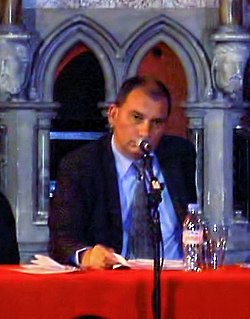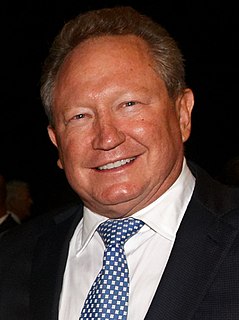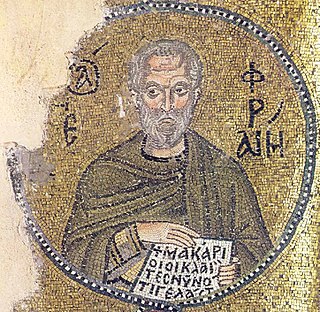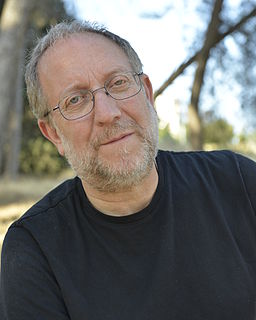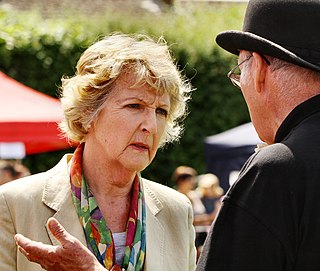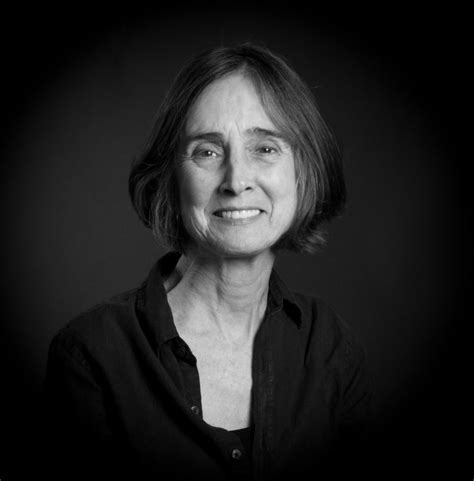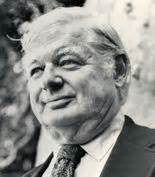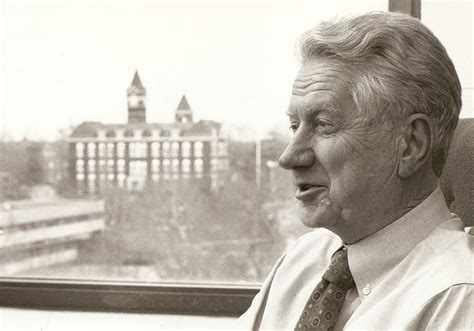Top 1200 Religious Texts Quotes & Sayings - Page 13
Explore popular Religious Texts quotes.
Last updated on October 19, 2024.
I think growing up, we always try to make sense of who we are, what we go through, and I grew up in a very religious household. I interpreted what was wrong with me through religious language and I concluded, probably because of a combination of forces around me, that there was something in me that God didn't like or was unhappy with. Since these problems were in large part congenital, that meant that I was doomed from the beginning. I didn't have a chance.
Antisemitism is unique among religious hatreds. It is a racist conspiracy theory fashioned for the needs of messianic and brutal rulers, as dictators from the Tsars to the Islamists via the Nazis have shown. Many other alleged religious 'hatreds' are not hatreds in the true sense. If I criticise Islamic, Orthodox Jewish or Catholic attitudes towards women, for instance, and I'm accused of being a bigot, I shrug and say it is not bigoted to oppose bigotry.
Anybody who has read any biblical scholarship knows that every scholar struggles over completely intractable problems with the original texts, or what they have to work from. It's one of the great, powerful, mysterious objects that have come down through history. This does not translate into literal interpretation for me.
By helping to raise man above the level of bestial vegetation, faith contributes in reality to the securing and safeguarding of his existence. Take away from present-day mankind its education-based, religious-dogmatic principles- or, practically speaking, ethical-moral principles- by abolishing this religious education, but without replacing it by an equivalent, and the result will be a grave shock to the foundations of their existence.
I grew up in a very religious family, so that was never going to leave me. I just accepted it over the years. Although I'm not religious myself, it is so much a part of me. It's a part of my history, a part of my tradition and my culture, so I don't want to just throw it away and leave it behind, because it's made me who I am today.
The 21st century - and the atheists - needs the presence of religion, just as religion must deal with the real challenges and the thinkers of the day in order to sharpen the conscience and the intelligence of those who study the timeless sacred texts in a spirit of responding to the questions of their time.
I do a certain amount of work in religious communities on these issues. It's not the central focus of my work but it is certainly an area where I have worked a lot. It has gotten much better over the years, especially over the last couple years. There wasn't a religious environmental movement 15 years ago, but there is now - in the Catholic community, the Jewish community, the mainline Protestant community, and in the Evangelical community.
It's true that to speak of an ethic of giftedness, which is very much the ethic that I deploy in raising questions about designer children and genetic engineering - an appreciation of the giftedness of the child or the giftedness of life does have religious resonance, because a great many religious traditions emphasize the sense in which the good things in life are not all our own doing; they are gifts from God.
The goal of this office will not be to favor one religious group over another - or even religious groups over secular groups. It will simply be to work on behalf of those organizations that want to work on behalf of our communities, and to do so without blurring the line that our founders wisely drew between church and state.
Whatever else the religious Right may be, it is a bonanza for its opponents... Reports of the great terror that is upon us are raising millions of dollars in fund appeals by Planned Parenthood, the American Civil Liberties Union, the National Organization for Women, Norman Lear's People for the American Way, and others who claim to believe that the religious Right is the greatest peril to American democracy since Joe McCarthy.
Secular thinkers have no more been able to work free of the centuries-old Judeo-Christian culture than Christian theologians were able to work free of their inheritance of classical and pagan thought. The process... has not been the deletion and replacement of religious ideas but rather the assimilation and reinterpretation of religious ideas.
...the tale that's told for no other reason but companionship, which is another (and my favorite) definition of literature, the tale that's told for companionship and to teach something religious, of religious reverence, about real life, in this real world which literature should (and here does) reflect.
Let it simply be asked where is the security for property, for reputation, for life, if the sense of religious obligation deserts the oaths, which are the instruments of investigation in the Courts of Justice? And let us with caution indulge the opposition, that morality can be maintained without religion. Whatever may be conceded to the influence of refined education on minds of peculiar structure, reason and experience both forbid us to expect that National morality can prevail in exclusion of religious principle.
When you ban people from predominantly Muslim countries from coming into the U.S., even people who accompanied our soldiers and helped them on the battlefield, but you say, "But, of course, there's gonna be an exception if you're a religious minority," - OK, so that means Christians, there will be a different rule applied to Christians from these countries than others - that's a religious test. And that is completely contrary to our national traditions.
But theological change happens though selective quoting. Every religious person does it: You quote those verses that resonate with your own religious insights and ignore or reinterpret those that undermine your certainties. Selective quoting isn't just legitimate, but essential: Religions evolve through shifts in selective quoting.
I kept careful record of the impact of religion on the election in my county. The religious issue permeated every meeting I conducted. It influenced Republicans and Democrats alike. Ministers preached politics publicly and churches distributed the most vicious electioneering materials. Practically no one I met escaped the pressure of this overriding problem and both parties were ultimately forced to make their major calculations with the religious question a foremost consideration.
Senate Bill 1062 does not address a specific or present concern related to religious liberty in Arizona. I have not heard one example in Arizona where a business owner’s religious liberty has been violated. The bill was broadly worded - and could result in unintended and negative consequences. After weighing all the arguments I have vetoed Senate Bill 1062 moments ago.
The most significant moment will be when we stop referring to the hiring of qualified women (and racial, ethnic and religious minorities) as significant. In other words, when qualified people are hired without regard to race, gender, ethnicity, religious or other differentiating characteristics, that will be the most significant, indeed momentous, event of all.
Religious faith in the case of the Hindus has never been allowed to run counter to scientific laws, moreover the former is never made a condition for the knowledge they teach, but there are always scrupulously careful to take into consideration the possibility that by reason both the agnostic and atheist may attain truth in their own way. Such tolerance may be surprising to religious believers in the West, but it is an integral part of Vedantic belief.
All sentences of the type 'deconstruction is X' or 'deconstruction is not X', a priori miss the point, which is to say that they are at least false. As you know, one of the principal things at stake in what is called in my texts 'deconstruction', is precisely the delimiting of ontology and above all of the third-person present indicative: S is P.
If Jesus remained dead, how can you explain the reality of the Christian church and its phenomenal growth in the first three centuries of the Christian era? Christ's church covered the Western world by the fourth century. A religious movement built on a lie could not have accomplished that....All the power of Rome and of the religious establishment in Jerusalem was geared to stop the Christian faith. All they had to do was to dig up the grave and to present the corpse. They didn't.
Now, the topic of religion seems much more complex, and I have a more complex relationship with it myself because I love religious music. I often find myself wanting to be in a religious state of mind even though I don't intellectually believe it. I want to go to that place emotionally. So it doesn't feel like something that I really want to debunk in that way. It's just not where my interests lie at the moment.
There is a fundamental spiritual quality to gratitude that transcends religious traditions. Gratitude is a universal human experience that can seem to be either a random occurrence of grace or a chosen attitude to create a better experience of life; in many ways it contains elements of both. Grateful people sense that they are not separated from others or from God; this recognition of unity with all things brings a deep sense of gratefulness, whether we are religious or not.
Socialist ideology, like so many others, has two main dangers. One stems from confused and incomplete readings of foreign texts, and the other from the arrogance and hidden rage of those who, in order to climb up in the world, pretend to be frantic defenders of the helpless so as to have shoulders on which to stand.
the scientist's religious feeling takes the form of a rapturous amazement at the harmony of natural law, which reveals an intelligence of such superiority that, compared with it, all the systematic thinking and acting of human beings is utterly insignificant reflection. This feeling is the guiding principle of his life and work, in so far as he succeeds in keeping himself from the shackles of selfish desire. It is beyond question closely akin to that which has possessed the religious geniuses of all ages.
Along with Islam and Christianity, Judaism does insist that some turgid and contradictory and sometimes evil and mad texts, obviously written by fairly unexceptional humans, are in fact the word of god. I think that the indispensable condition of any intellectual liberty is the realisation that there is no such thing.
Both our present science and our present technology are so tinctured with orthodox Christian arrogance toward nature that no solution for our ecologic crisis can be expected from them alone. Since the roots of our trouble are so largely religious, the remedy must also be essentially religious, whether we call it that or not. We must rethink and refeel our nature and destiny.
The history of the Jews has been written overwhelmingly by scholars of texts - understandably given the formative nature of the Bible and the Talmud. Seeing Jewish history through artifacts, architecture and images is still a young but spectacularly flourishing discipline that's changing the whole story.
The great masses of people do not consist of philosophers; precisely for the masses, faith is often the sole foundation of a moral attitude. The various substitutes have not proved so successful from the standpoint of results that they could be regarded as a useful replacement for previous religious creeds. But if religious doctrine and faith are really to embrace the broad masses, the unconditional authority of the content of this faith is the foundation of all efficacy.
In America, religious dissent is as vital as it is elusive. Like the secretions of the pituitary, the juices of dissent are essential to ongoing life even if we do not always know precisely how, when or where they perform their tasks, and the not knowing - the flimsy, filmy elusiveness - is supremely characteristic of America's expressions of religious dissent. For in the United States no stalwart orthodoxy stands ever ready to parry the sharp thrust or clever feints of dissent.
It has drowned the most heavenly ecstasies of religious fervour, of chivalrous enthusiasm, of Philistine sentimentalism, in the icy water of egotistical calculation. It has resolved personal worth into exchange value, and in place of numberless indefeasible chartered freedoms, it has set up that single, unconscionable freedom -- free trade. In one word, for exploitation, veiled by religious and political illusions, it has substituted naked, shameless, direct, brutal exploitation.
Trouble arises when either science or religion claims universal jurisdiction, when either religious dogma or scientific dogma claims to be infallible. Religious creationists and scientific materialists are equally dogmatic and insensitive. By their arrogance they bring both science and religion into disrepute.
It is the duty of all men in society, publicly, and at stated seasons, to worship the SUPREME BEING, the great Creator and Preserver of the universe. And no subject shall be hurt, molested, or restrained, in his person, liberty, or estate, for worshipping GOD in the manner most agreeable to the dictates of his own conscience; or for his religious profession or sentiments; provided he doth not disturb the public peace, or obstruct others in their religious worship.
To those who cite the first amendment as reason for excluding God from more and more of our institutions and everyday life, may I just say: The first amendment of the Constitution was not written to protect the people of this country from religious values; it was written to protect religious values from government tyranny.
Systems of religious error have been adopted in times of ignorance. It has been the interest of tyrannical kings, popes, and prelates to maintain these errors. When the clouds of ignorance began to vanish and the people grew more enlightened, there was no other way to keep them in error but to prohibit their altering their religious opinions by severe persecuting laws. In this way persecution became general throughout Europe.

